Affiliate links on Android Authority may earn us a commission. Learn more.
ASUS Zenfone 8 series buyer's guide: Everything you need to know
Published onMay 21, 2022
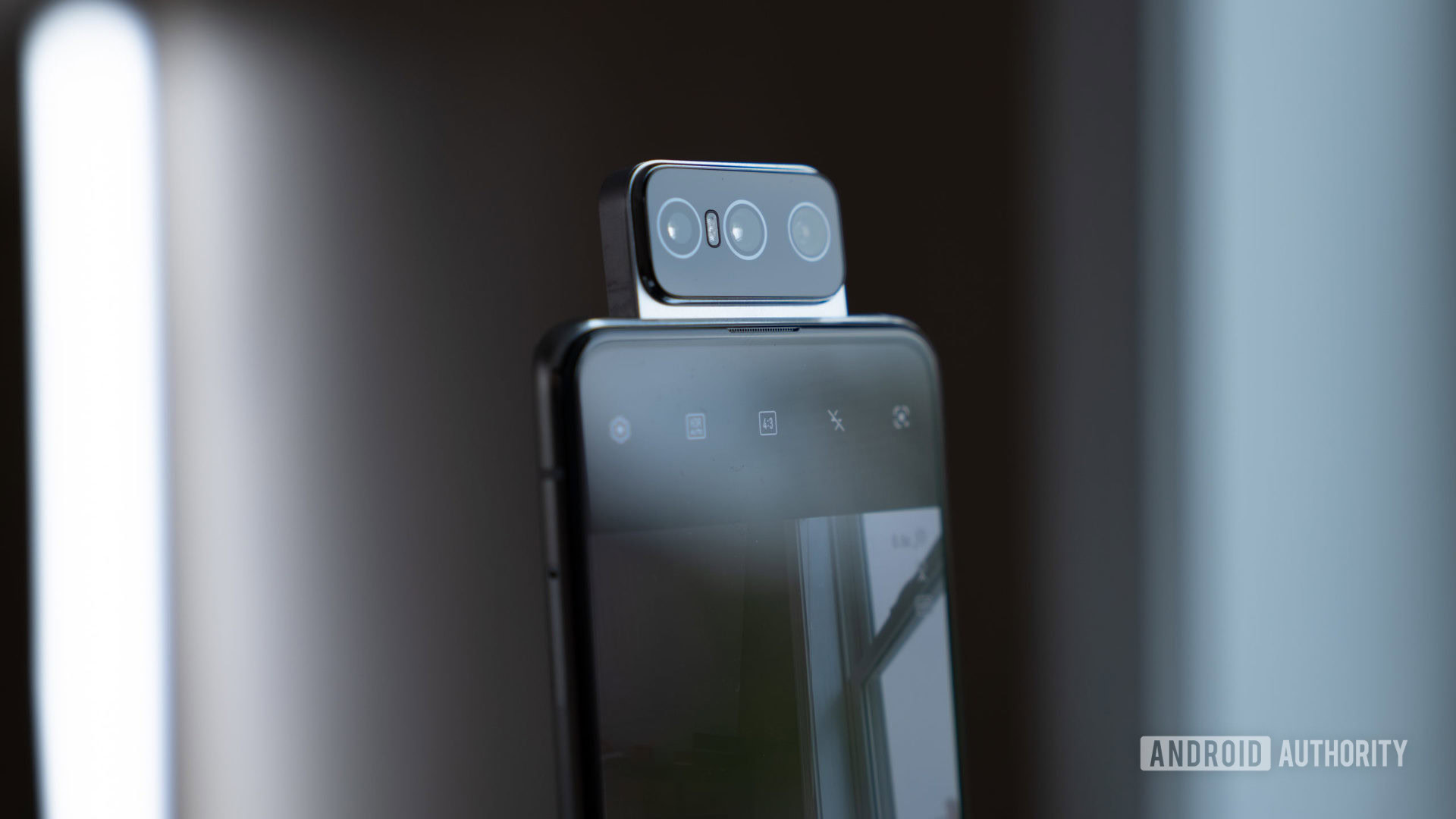
The ASUS Zenfone series has quietly carved out a niche over the years as a flagship series that stands out from the pack. 2019’s Zenfone 6 introduced a flipping camera setup that bucked the trend of notches, punch-holes, and pop-up cameras. 2020’s Zenfone 7 series was built atop this foundation and introduced a second model with the Zenfone 7 Pro.
Now, the ASUS Zenfone 8 generation is here, and we’re looking at two very different offerings in the Zenfone 8 and Zenfone 8 Flip. Here’s everything you should know about these phones.
Zenfone 8 series at a glance
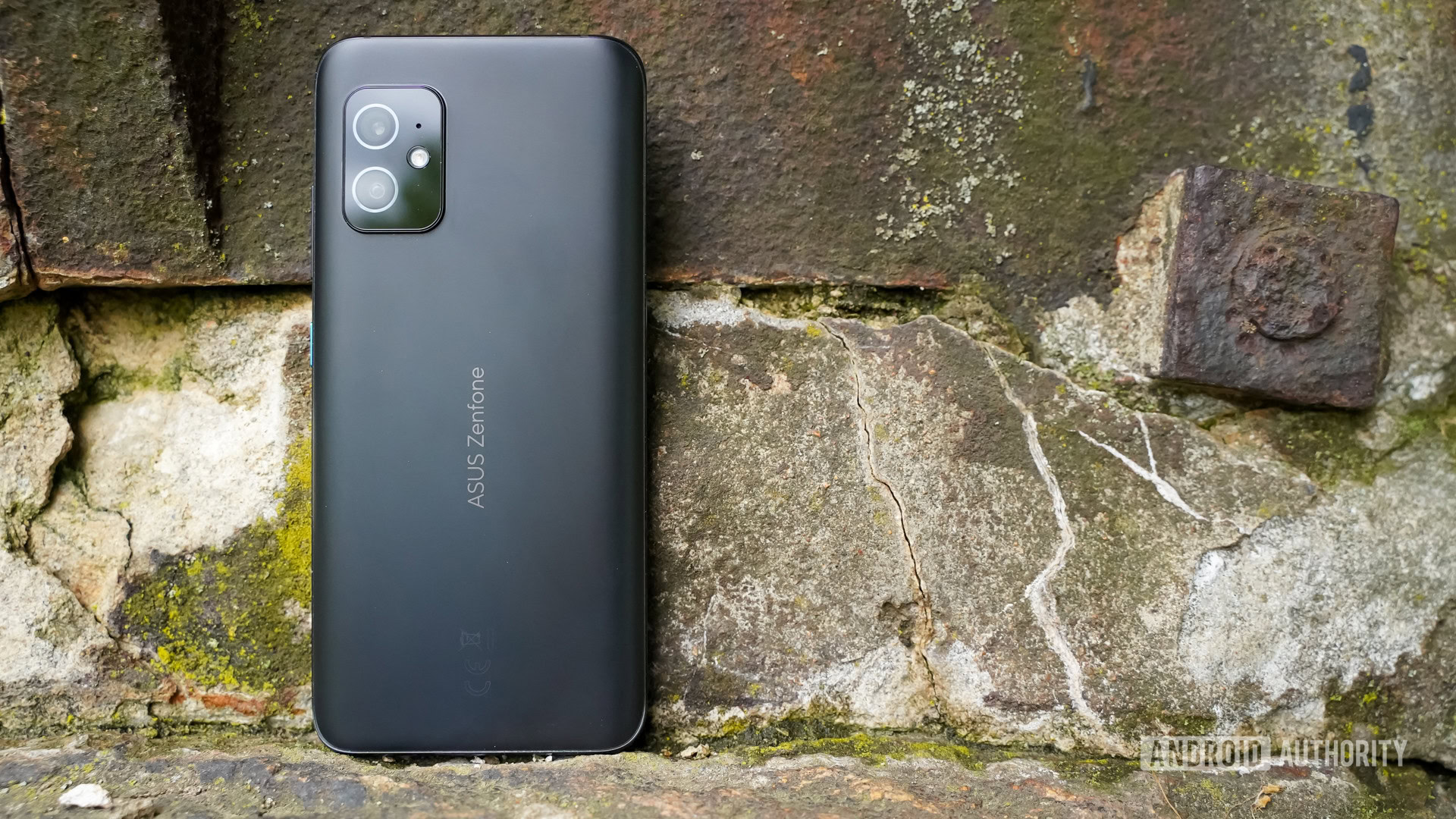
The ASUS Zenfone 8 series launched on May 12, 2021, and is the company’s flagship family for that year. That means you can expect top-end power, high refresh rate OLED screens, and other typical flagship stylings. The phones became available in Europe first, with Indian and US launches happening later.
ASUS is positioning the standard Zenfone 8 (seen above) as a more compact but otherwise traditional flagship owing to its 6-inch screen size. Meanwhile, the Zenfone 8 Flip is more in line with the previous models, featuring a near-identical flipping camera mechanism. But the two Zenfone 8 devices differ in more ways than you might expect, with the standard phone offering some extra features.
The Zenfone 8 launched at $629 / €699 / £599, while the Zenfone 8 Flip was priced at €799 (~$970). The Zenfone 8 is available in Obsidian Black and Horizon Silver, while the Flip comes in Glacial Silver and Galactic Black options.
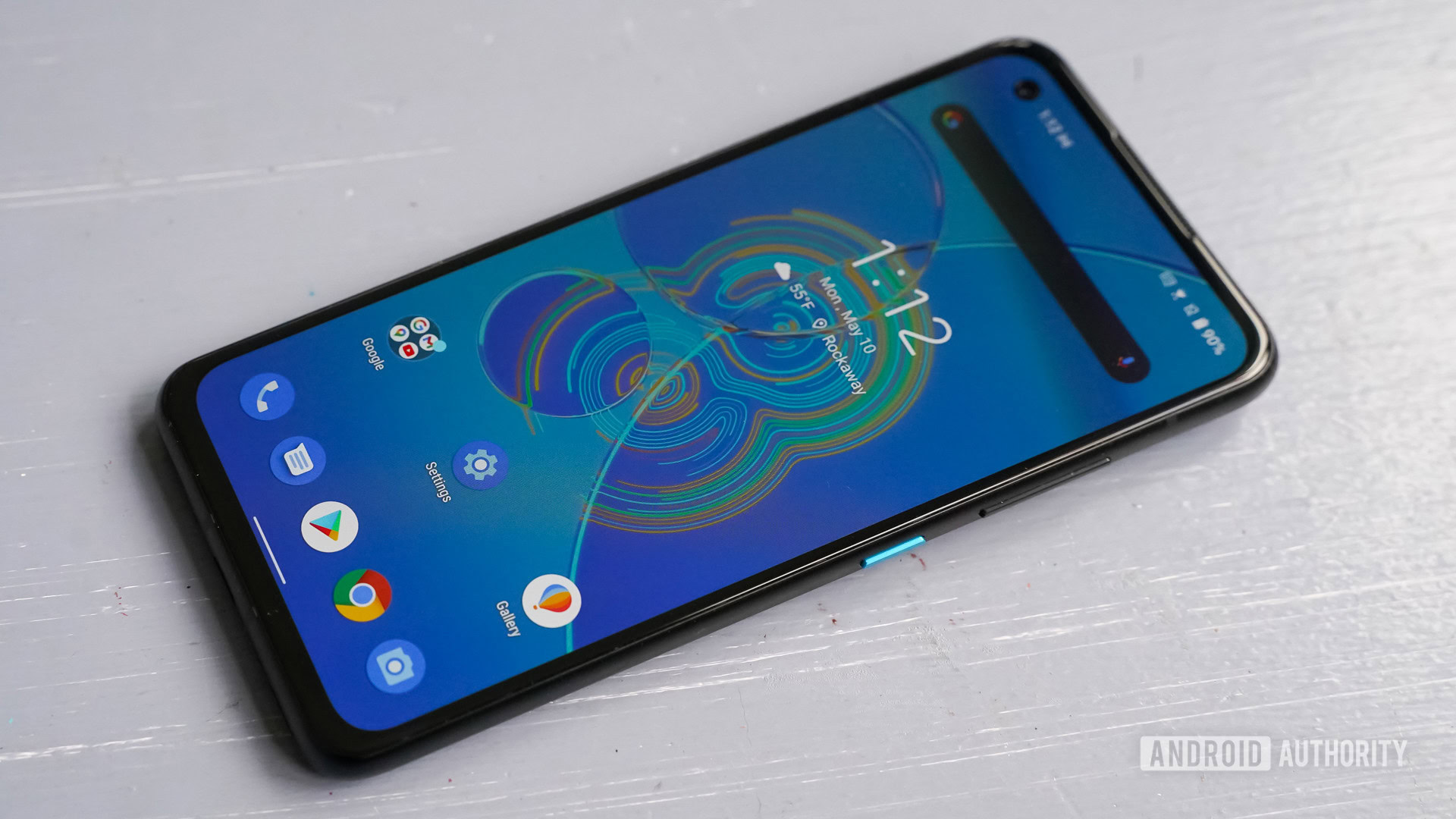
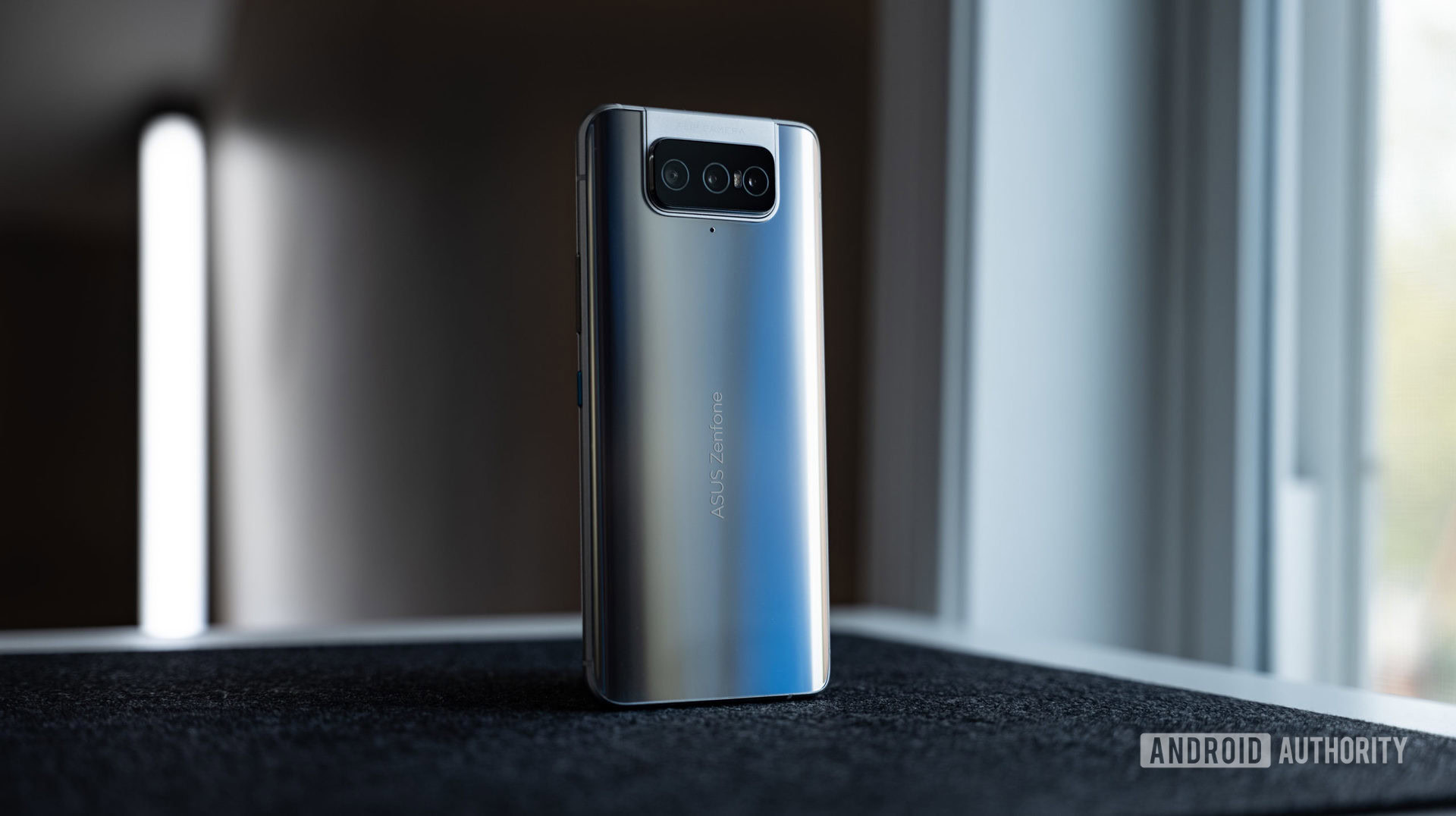
Is the Zenfone 8 series worth buying?
Both phones pack Snapdragon 888 chipsets, ticking the all-important power box for bonafide 2021 flagships. But the Zenfone 8 also has a 6-inch screen size and a more affordable price tag, making it worth considering if you feel most of today’s flagships are too big and too expensive.
The standard phone lacks a flipping camera setup but does make up for this omission with an IP68 rating for water and dust resistance as well as a 120Hz refresh rate. It also offers optical image stabilization on the main camera, which is missing on the Flip model. However, there are a couple of other compromises on the more compact phone, such as the lack of a telephoto camera and a smaller battery.
The ASUS Zenfone 8 and Zenfone 8 Flip are starkly different devices, with each having its upsides and downsides.
Did you like the vanilla Zenfone 7 and its flippy camera but want a more powerful experience? That’s exactly what you’re getting with the Zenfone 8 Flip (seen above), featuring near-identical specs as the vanilla Zenfone 7 — notably not the Zenfone 7 Pro — bar the upgraded processor. That flippy camera setup means you can take selfies with the higher quality main camera, the ultrawide shooter, or even the telephoto lens if you want. So vloggers and selfie enthusiasts might want to keep this in mind.
Zenfone 8 and Zenfone 8 Flip specs
There are plenty of differences between the Zenfone 8 and Zenfone 8 Flip when you look at the all-important specs. In fact, ASUS is calling the standard Zenfone 8 its main flagship. You can check out the specs table below.
| ASUS Zenfone 8 | ASUS Zenfone 8 Flip | |
|---|---|---|
Display | ASUS Zenfone 8 5.9-inch AMOLED FHD+ HDR10+ 120Hz refresh rate Corning Gorilla Glass Victus | ASUS Zenfone 8 Flip 6.67-inch AMOLED FHD+ HDR10+ 90Hz refresh rate Corning Gorilla Glass 6 |
Processor | ASUS Zenfone 8 Qualcomm Snapdragon 888 | ASUS Zenfone 8 Flip Qualcomm Snapdragon 888 |
GPU | ASUS Zenfone 8 Qualcomm Adreno 660 | ASUS Zenfone 8 Flip Qualcomm Adreno 660 |
RAM | ASUS Zenfone 8 6/8/16GB LPDDR5 | ASUS Zenfone 8 Flip 8GB LPDDR5 |
Storage | ASUS Zenfone 8 128/256GB UFS 3.1 Non-expandable | ASUS Zenfone 8 Flip 128/256GB UFS 3.1 Expandable with microSD card (up to 2TB) |
Battery | ASUS Zenfone 8 4,000mAh battery 30W wired charging | ASUS Zenfone 8 Flip 5,000mAh battery 30W wired charging |
Cameras | ASUS Zenfone 8 Primary: 64MP Sony IMX686 sensor with OIS, 2x lossless zoom f/1.8 aperture 0.8μm pixels Dual LED flash 8K/30fps video Secondary: 12MP ultra-wide sensor, Dual PDAF, macro mode (IMX363, 113 degrees) Front: 12MP IMX663 f/2.45 aperture 1.22μm pixels Dual PDAF | ASUS Zenfone 8 Flip Primary: 64MP Sony IMX686 sensor f/1.8 aperture 0.8μm pixels Dual LED flash 8K/30fps video Secondary: 12MP ultra-wide sensor (IMX363, 112 degrees) Tertiary: 8MP 3x telephoto |
Connectivity | ASUS Zenfone 8 Wi-Fi 6E (US only) Bluetooth 5.2 NFC Dual nano-SIM | ASUS Zenfone 8 Flip Wi-Fi 6 Bluetooth 5.2 NFC Dual nano-SIM |
Operating System | ASUS Zenfone 8 ZenUI 8 Android 11 | ASUS Zenfone 8 Flip ZenUI 8 Android 11 |
Audio | ASUS Zenfone 8 Stereo speakers 3.5mm port | ASUS Zenfone 8 Flip Stereo speakers No 3.5mm port |
Dimensions | ASUS Zenfone 8 148 x 68.5 x 8.9mm 169g | ASUS Zenfone 8 Flip 165.04 x 77.28 x 9.6mm 230g |
Colors | ASUS Zenfone 8 Obsidian Black Horizon Silver | ASUS Zenfone 8 Flip Galactic Black Glacier Silver |
What experts are saying about the ASUS Zenfone 8 series
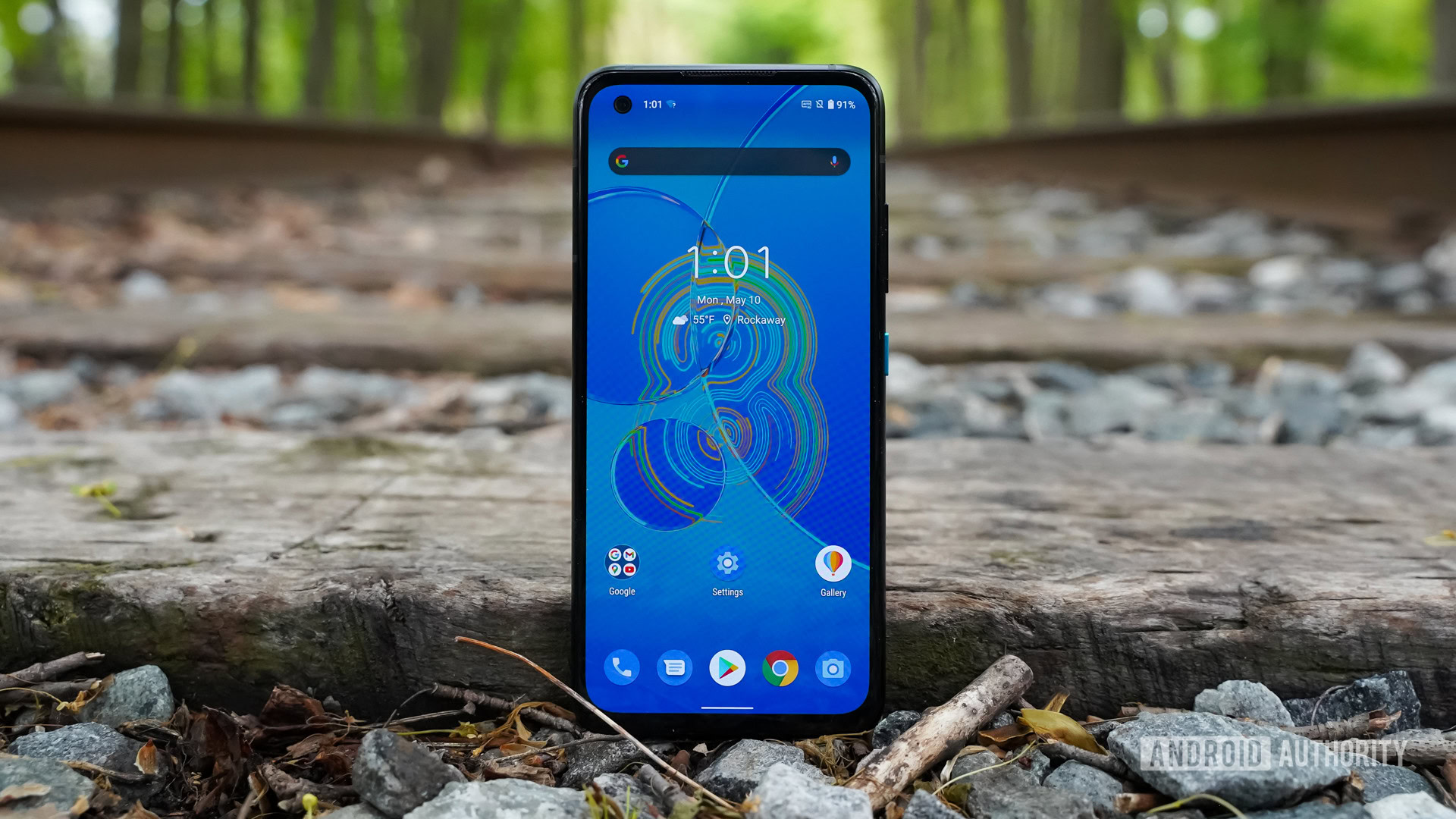
Our own Eric Zeman was very pleased with the standard phone in his Zenfone 8 review, giving it four stars out of five. The device is one of the few compact flagship phones released in 2021, making it stand out even more.
Eric praised the compact design, fluid display, great performance, clean software, and attractive price tag. But he also lamented the mediocre cameras, average endurance, and lack of wireless charging.
Check it out: ASUS Zenfone 8 review | ASUS Zenfone 8 Flip hands-on
We also went hands-on with the Zenfone 8 Flip, with Luke Pollack liking the build quality, flip camera setup, full-screen display, and Android skin. Unfortunately, Luke criticized the lack of wireless charging and the refresh rate compared to the standard phone. He also took issue with the €799 price, especially when 2020’s Zenfone 7 series offered a very similar experience.
Other websites also reviewed the Zenfone 8 series, and here’s what some of these outlets had to say:
- Steven Winkelman at PCMag: Winkelman called the standard phone a “top choice for small-phone fans,” giving it four stars out of five. He liked the size, performance, audio, and camera quality. In saying so, he did level criticism at the lack of wireless charging, the lack of guaranteed updates, and the fact that it doesn’t support Verizon’s network.
- Jordan Palmer at Tom’s Guide: Palmer gave the phone 4.5 stars out of five, saying it punched “well above its weight.” He specifically liked the size, software skin, horsepower, and camera quality. He did, however, lament the lack of wireless charging and the poor portrait mode.
- Allison Johnson at The Verge: Johnson gave the device an eight out of 10, praising the “thoughtful” compact design, build quality and IP68 rating, and performance. She did lament the fact that there are only two OS updates, the lack of a telephoto lens, and the average battery life, though.
- Lewis Painter at Tech Advisor: Painter gave the Flip phone 3.5 stars out of five, saying that the lack of features compared to the vanilla model made it a “harder sell.” He criticized the lack of water resistance, OIS, headphone port (as seen on the vanilla phone), and wireless charging. He also lamented the phone’s heft and weight. It wasn’t all bad, though, as he liked the flipping camera system, full-screen display, and performance.
- Mariyan Slavov at Phone Arena: Slavov gave the Zenfone 8 Flip a score of 7.9 out of 10. He praised the full-screen display, main camera, performance, and storage expansion. However, the reviewer criticized the phone’s weight, inconsistent endurance, lack of wireless charging, water resistance, and 3.5mm port.
What’s the deal with the Zenfone 8 Flip’s camera setup?
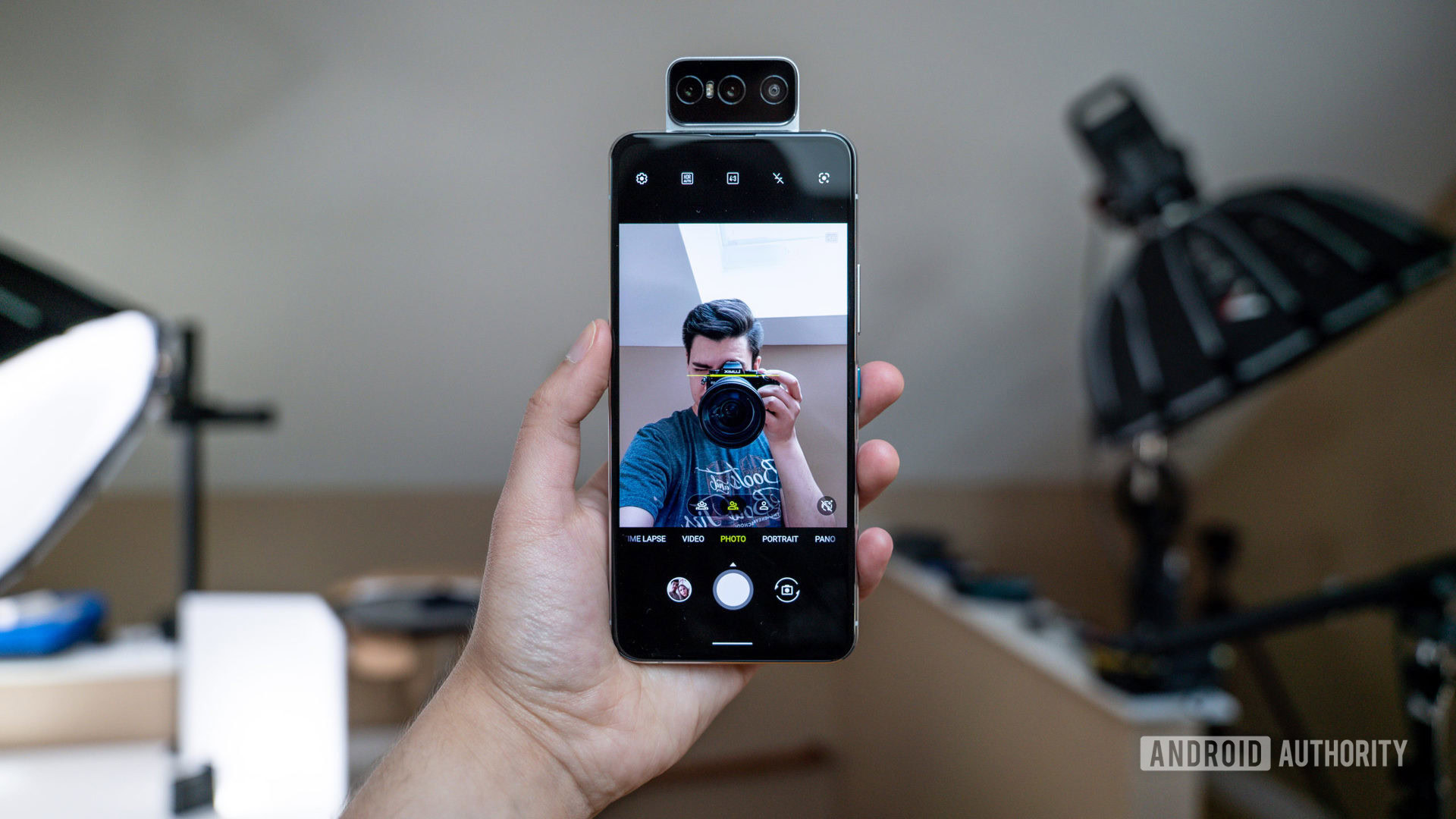
The Zenfone 8 sports a traditional rear-facing camera setup, but the Zenfone 8 Flip adopts the flipping camera system the series has become known for. That means you can take selfies with the main cameras and have an uninterrupted full-screen experience too.
This isn’t quite the same flipping camera system as the Zenfone 7, though, as ASUS says the new motor is “stronger, smoother, and more durable.” In the latter case, ASUS says the flip system is designed for 300,000 flips. That’s 150 flips a day for over five years.
The company also has an angle sensor that lets you swivel the camera to a predetermined angle at the push of a button. More specifically, you can set the camera motor to automatically swivel to zero, 45, 90, or 135 degrees. The firm says you’re also getting faster panoramas and automatic motion tracking thanks to that motor too.
Are the Zenfone 8 series cameras good?
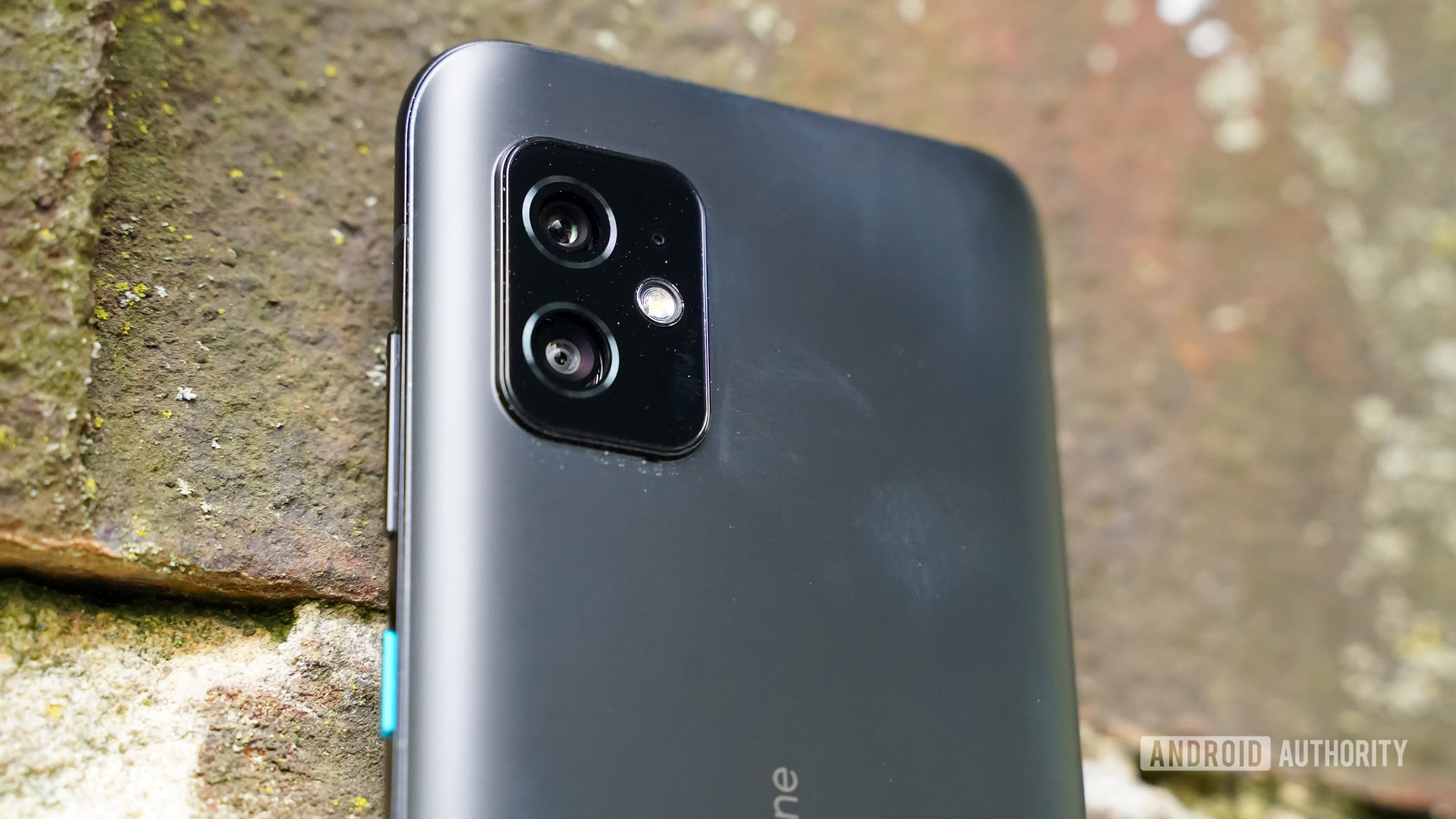
If you expected a major upgrade over the Zenfone 7 series, then you’ll definitely be disappointed. The Zenfone 8 Flip maintains the Zenfone 7’s flipping triple camera system, featuring a 64MP IMX686 main camera, 12MP IMX363 ultrawide snapper (112-degree field of view) and 8MP 3X optical telephoto sensor. Unfortunately, none of these cameras offer optical image stabilization (OIS). But again, you’ll get high-quality selfies due to the use of the flipping camera system.
The standard Zenfone 8 is a mixed bag on paper too. It features the Zenfone 8 Flip’s 64MP main and 12MP ultrawide cameras but ditches the telephoto lens. So you’re left with a dual rear camera system, along with 2x “lossless” zoom via the main camera. The one upside is that the phone is equipped with OIS for the main camera, so expect smoother video and better low-light performance than the Flip. Selfies are handled by a 12MP punch-hole camera (1.4-micron pixels, IMX663, dual PDAF).
The Zenfone 8 Flip offers a versatile camera setup but lacks OIS, while the standard phone packs two rear cameras but offers OIS.
What about real-world usage, though? Well, Luke said in his hands-on that the primary camera delivered images that were “well-detailed and fairly color-accurate.” He noted that the ultrawide camera was a little softer and noisier than the primary shooter, and the tele lens wasn’t great either.
Meanwhile, Eric wrote in his review that images via the main camera were good but “short of excellent.” He felt that the ultrawide camera wasn’t as good as the main shooter, noting a dramatic increase in noise and grainy low-light shots. He thought selfie images via the 12MP front-facing camera were “pleasing,” though.
What about the Zenfone 8 series battery life?
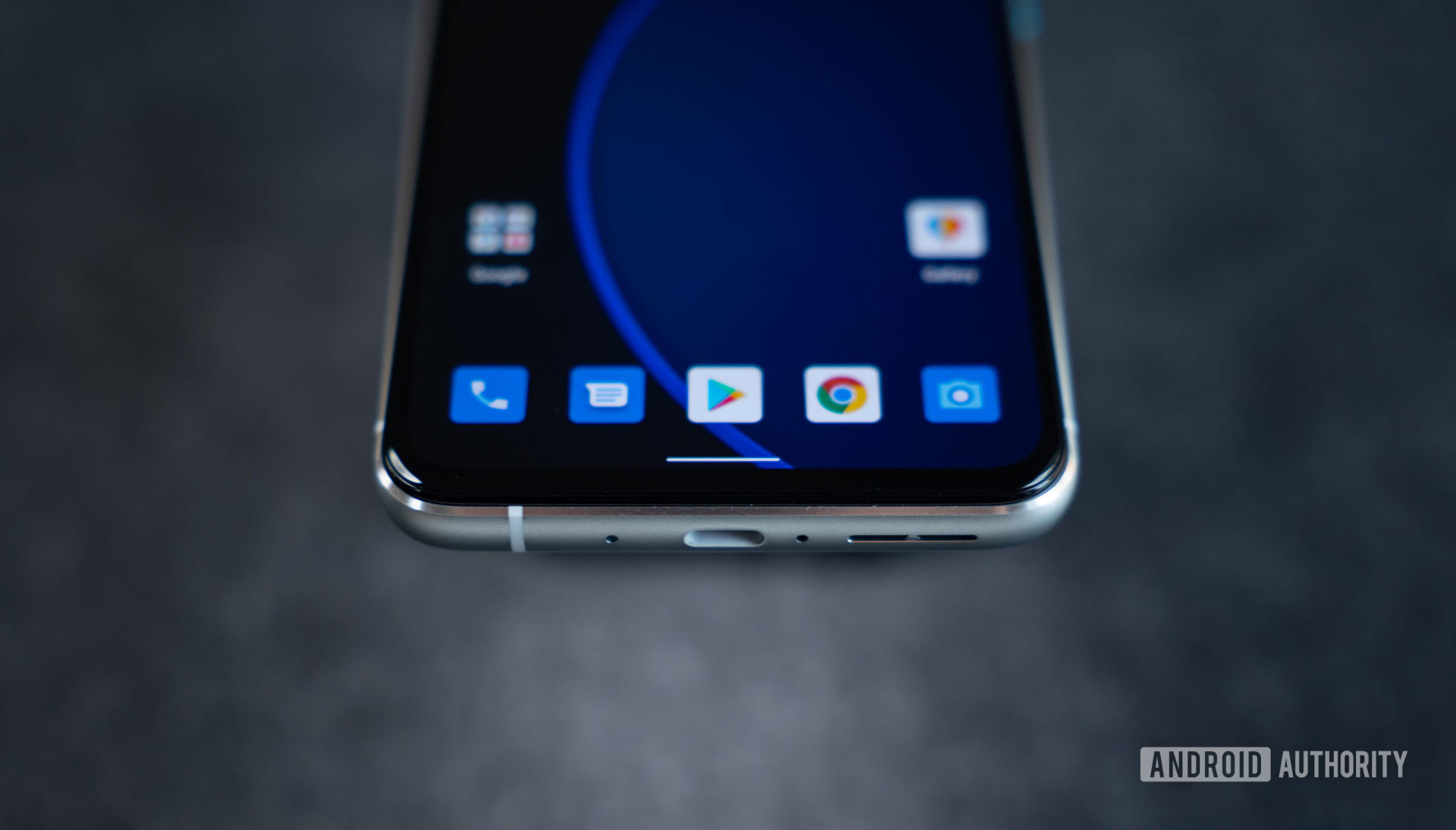
It’s business as usual for the Zenfone 8 Flip, as it’s equipped with the same setup as last year’s phones. That means a 5,000mAh battery with 30W wired charging. The standard Zenfone 8 sees a big capacity drop to a 4,000mAh battery but still maintains 30W wired top-ups.
Eric wrote in his review that the standard model had “average” battery life. He said that the Zenfone 8 would get through a full day with some capacity to spare when using the adaptive 120Hz mode. He added that the phone only just got through a full day at a forced 120Hz. Topping up the phone took 80 minutes, which is in line with the company’s claims.
Related: The best phone charging accessories
Luke only went hands-on with the Zenfone 8 Flip for a fleeting amount of time, so he didn’t have any thoughts on battery life. But we noted in our Zenfone 7 Pro review that the similarly equipped older phone delivered two days of juice and a full day with heavy usage.
What about performance?
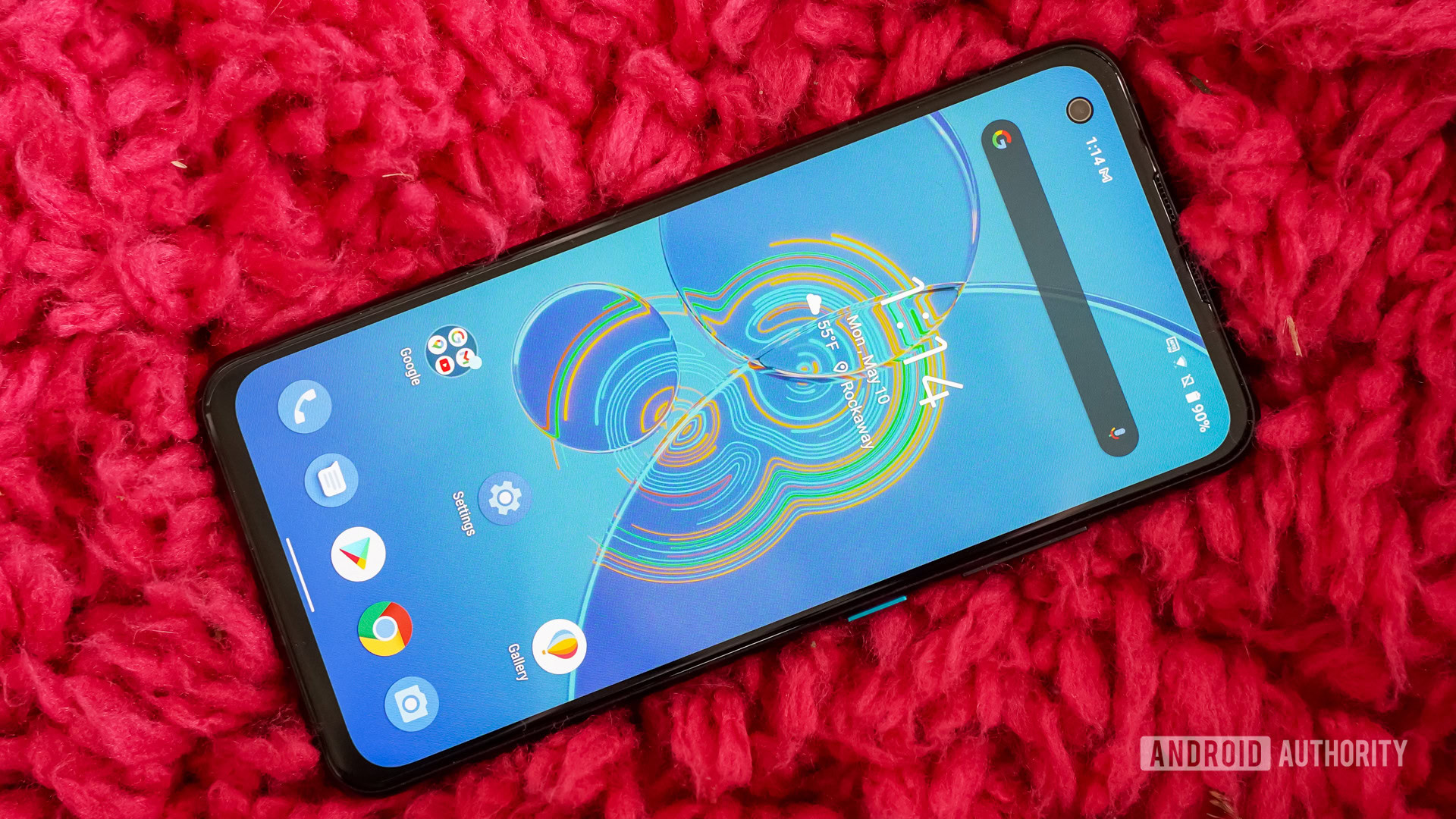
Both Zenfones are equipped with the Snapdragon 888 SoC — the undisputed Android phone processor series of 2021 in terms of pure speed. Therefore, both phones should fly in tasks like swiping through system menus, web browsing, launching apps, and camera-related activities.
The chipset also enjoys a class-leading GPU, which means advanced 3D games should be a very smooth experience. In fact, the Snapdragon 888 should deliver a smooth experience in games for the next few years compared to phones with mid-range silicon.
Snapdragon SoC guide: All of Qualcomm’s smartphone processors explained
As for real-world use, Eric said in his Zenfone 8 review that everyday performance was smooth and had no hitches. He added that even the most demanding game he tested turned in smooth experiences. So we’re guessing that the Flip is in the same boat given the silicon.
Zenfone 8 software and updates
ASUS doesn’t have the best reputation among Android manufacturers regarding prompt updates and lengthy commitment periods. Sadly, it doesn’t seem like we have any dramatic changes with the Zenfone 8 series.
The company has confirmed that “at least” two major OS updates are in the works for the Zenfone 8 series. This theoretically leaves the door open for a third version update, but we wouldn’t count on it. Otherwise, the phones run ZenUI 8 atop Android 11 but can already be updated to Android 12.
Zenfone 8 vs Zenfone 7: What’s new?
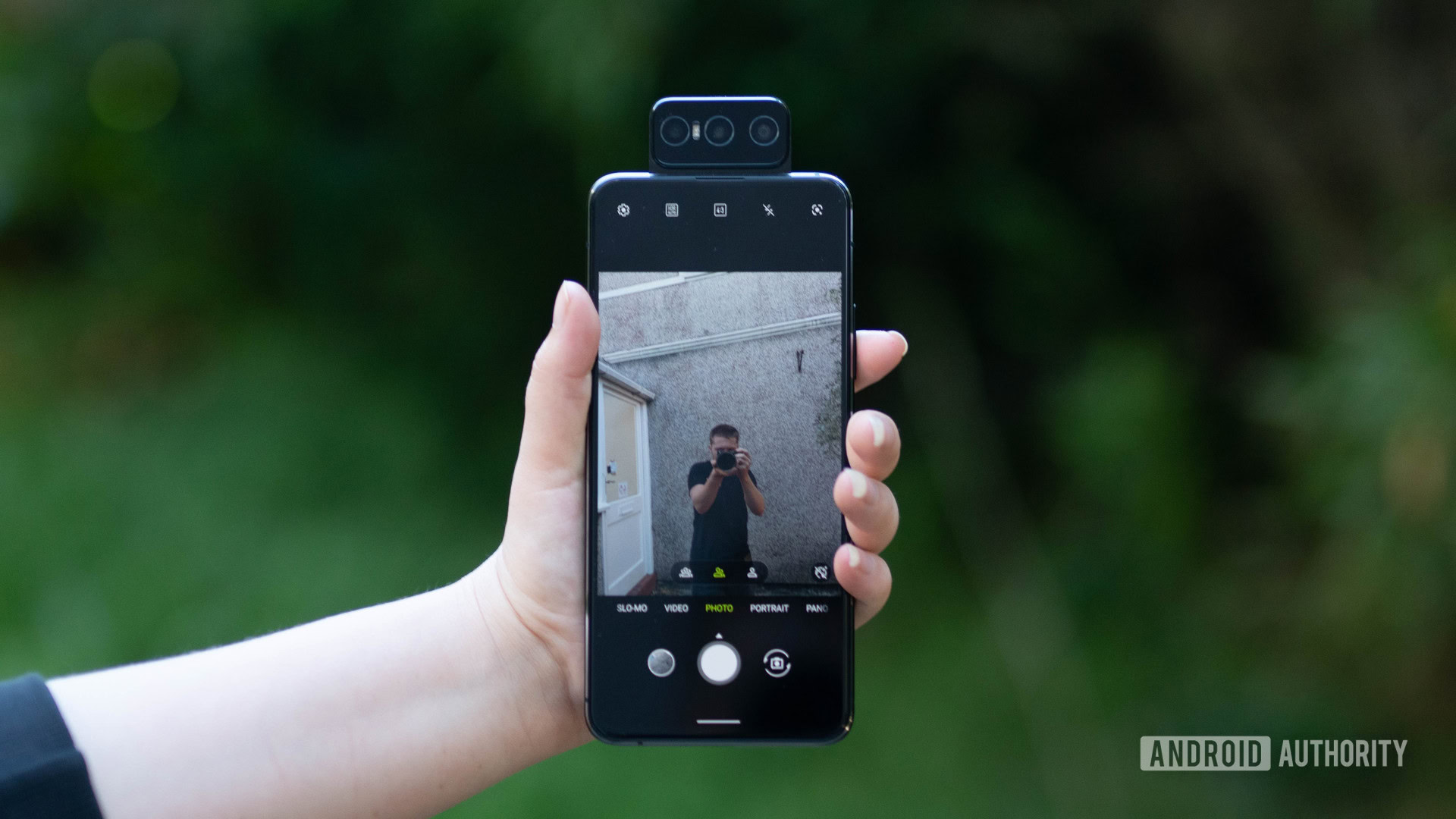
The vanilla Zenfone 8 misses out on a few features compared to its predecessors, namely a telephoto camera, flipping camera setup, uninterrupted full-screen display, and a 5,000mAh battery. But the phone steps things up with a more powerful chipset, higher refresh rate, IP68 rating, and a 3.5mm port. Yep, the latter two options are completely missing from the Zenfone 7 series and Zenfone 8 Flip.
ASUS Zenfone 7 series: Everything you need to know about these flippy phones
Turning to the Zenfone 8 Flip, it seems like the new phone is a very incremental upgrade over the Zenfone 7. You’re essentially getting a beefier SoC (in line with the Zenfone 8) and a more durable camera motor. But you’re still getting the same battery size, charging speed, refresh rate, basic design, and camera system (albeit without OIS seen on the Zenfone 7 Pro).
What are some good Zenfone 8 series alternatives?
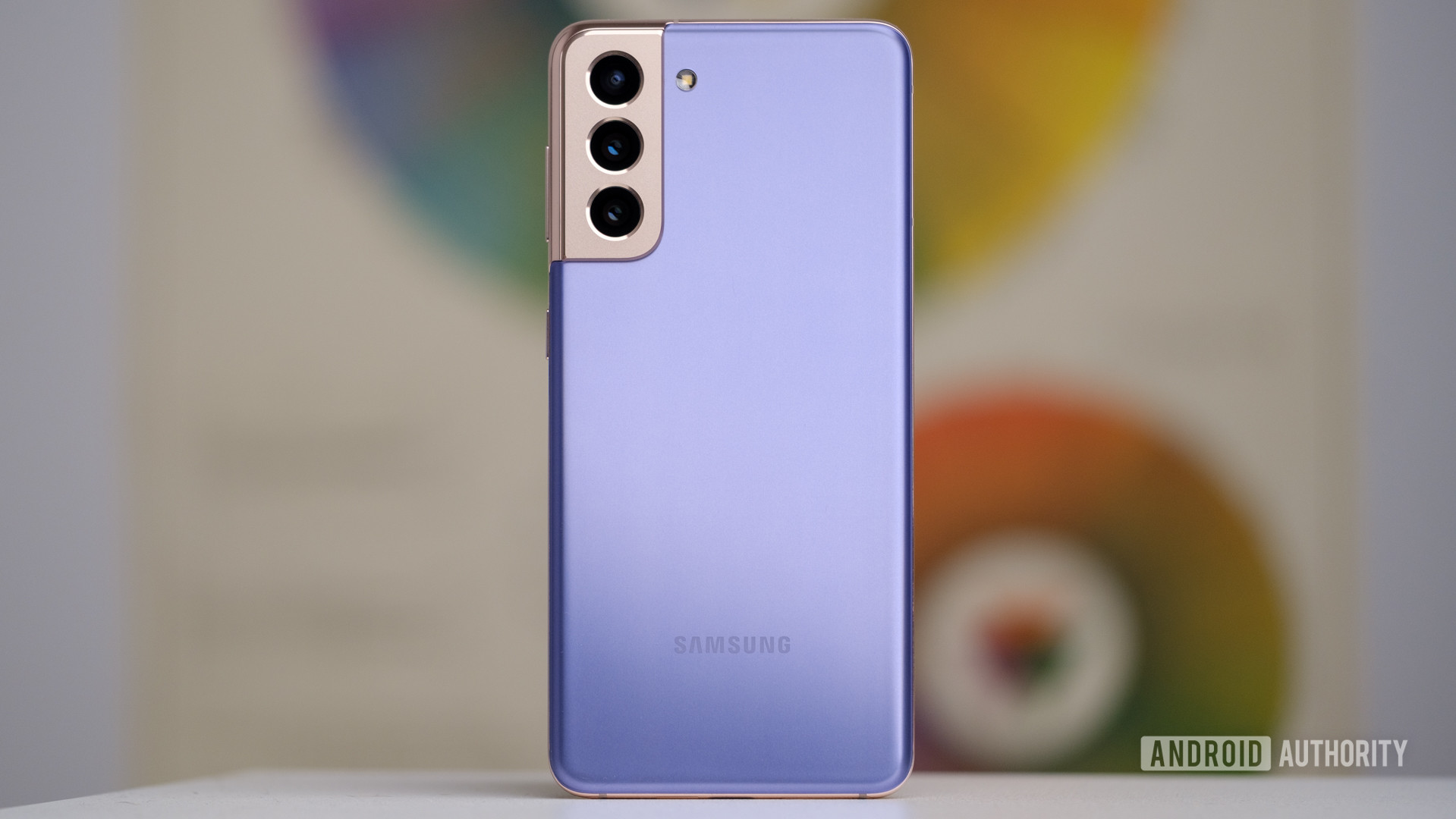
The Zenfone 8 and Zenfone 8 Flip are two unique propositions in the Android smartphone landscape, but we’ve still managed to find a few alternatives you should consider:
- ASUS Zenfone 7 (~$635): Like the idea of a flippy Zenfone but don’t want to spend a lot of cash on the new phones? That’s where 2020’s Zenfone 7 comes in, bringing that swivel camera setup for under $650 on the likes of Amazon. You do miss out on a new flagship chipset, but you’re still getting a powerful SoC, high refresh rate, and a big battery. Plus, you’re getting identical cameras here. However, the phone is kind of hard to get at the moment.
- Samsung Galaxy S21 FE ($585): Samsung’s cheapest 2022 flagship is also a good match for the standard Zenfone 8, as they share some features like the Snapdragon 888 chipset. But the phone offers a bit more overall, sporting a larger display, a bigger battery, and better cameras. It also ships with Android 2 on board.
- Google Pixel 6 ($599): Google’s Pixel 6 bucks the trend of sensibly sized Pixels, but it still makes for a worthy alternative to the Zenfone 8. You’re getting a custom Tensor processor, water resistance, a similar dual rear camera system (main and ultrawide), and a competitive price tag. Google’s phone lacks a 3.5mm port though, but makes up for that with a bigger battery and five years of security updates.
- Apple iPhone 13 Mini ($699): The iPhone 13 Mini is a great match for the vanilla Zenfone 8 bringing a 5.4-inch OLED panel, IP68 rating, and a dual rear camera system (main and ultrawide). It also packs features like a powerful A15 processor and wireless charging — the latter is missing on the ASUS phone. The Zenfone 8 does one-up the iPhone with additions like a high refresh rate screen and 3.5mm port though.
Where to buy the Zenfone 8 series
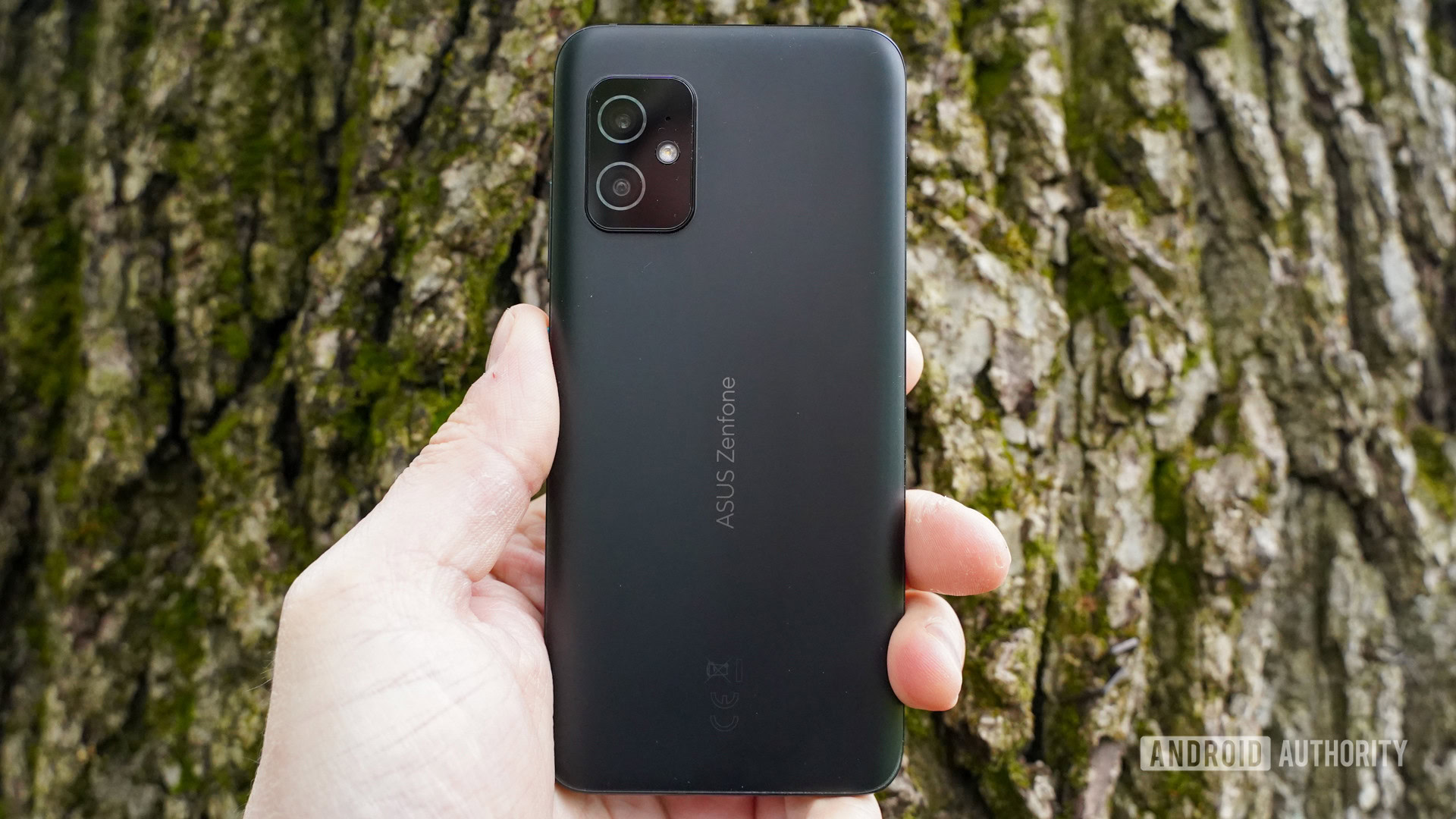
- ASUS Zenfone 8 (8GB/128GB): $629 / €699 / £599 /Rs. 42,999
- ASUS Zenfone 8 Flip (8GB/256GB): €799 / £699
The Zenfone 8 series is available globally, with some caveats. For example, the Zenfone 8 Flip didn’t land in the United States, but the Zenfone 8 landed there in June 2021.
The ASUS Zenfone 8 is available in the US, Europe, and the UK. It launched at $629 / €699 / £599 for the version with 8GB RAM and 128GB storage. Prices went up to $699 / €749 / / £599 for the version with 256GB storage (that version does not appear to be available in the UK yet).
As for the Zenfone 8 Flip, launched in Europe and the UK for €799 / £699 which is the only variant with an 8GB/256GB configuration.
The ASUS Zenfone 8 launched as the Zenfone 8z in India with a price of Rs. 42,999 for the 128GB version.
ASUS has revealed that the Zenfone 8 comes with Wi-Fi 6E in the US, but this feature is missing in other markets due to “local and regional regulations.”
Note: Prices have dropped a bit, depending on the market. The Zenfone 8 series has been out for a while now, which is why you can get it cheaper. Check out the most recent prices below.


FAQs
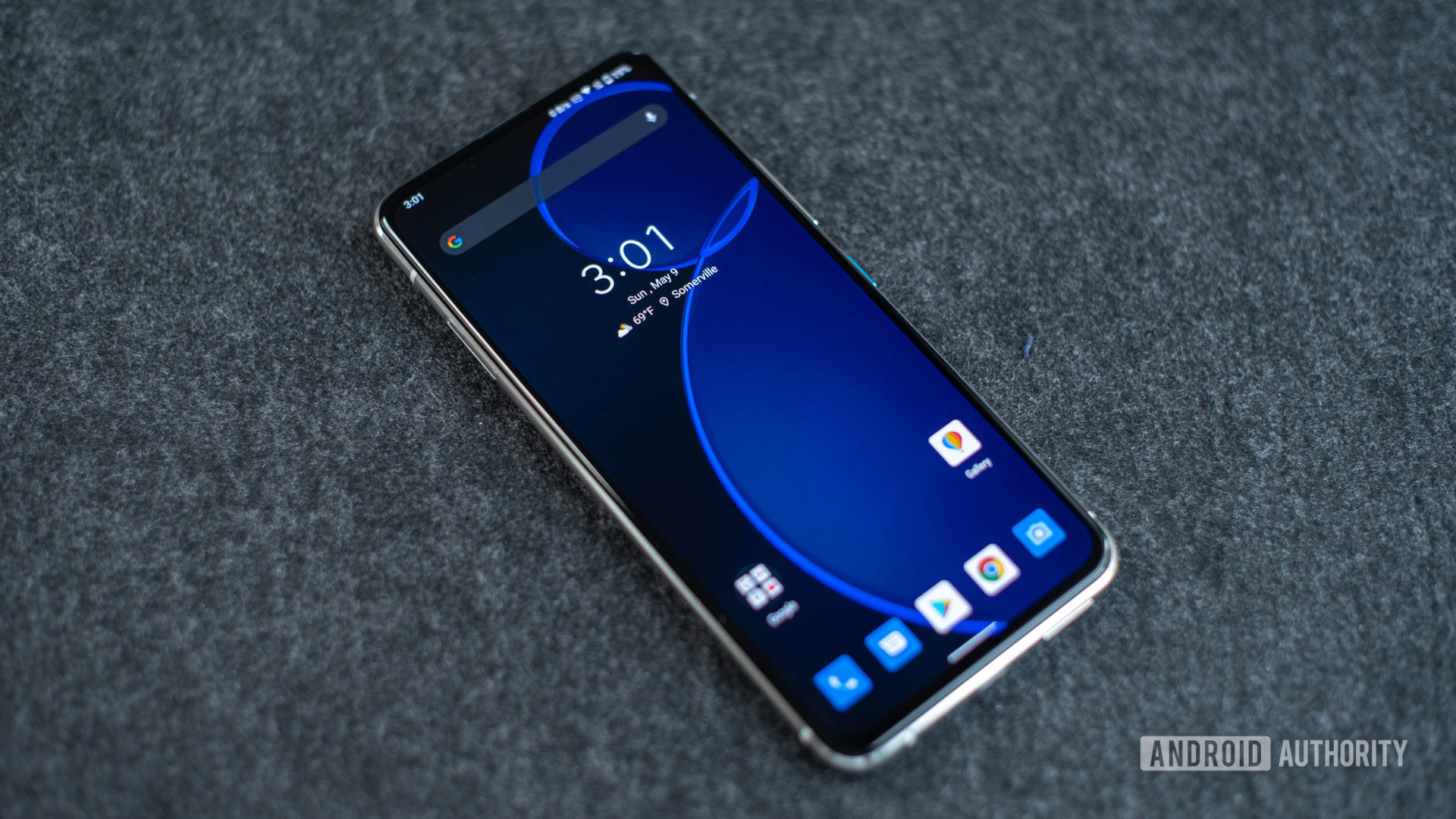
Only the standard Zenfone 8 has a 3.5mm port.
The Zenfone 8 uses Gorilla Glass Victus, and the Flip uses Gorilla Glass 6.
The Zenfone 8 has an IP65/68 rating, while the Zenfone 8 Flip does not have an IP rating.
The Zenfone 8 has a 120Hz refresh rate, while the Zenfone 8 Flip has a 90Hz screen.
Only the Zenfone 8 Flip supports microSD expansion.
Yes, both phones come with a 30W charger.
In addition to the 30W charger, the phones also come with a USB-C to USB-C cable, an ejector pin, and documentation. The Zenfone 8 also comes with a bumper case, while the Flip comes with an active case.